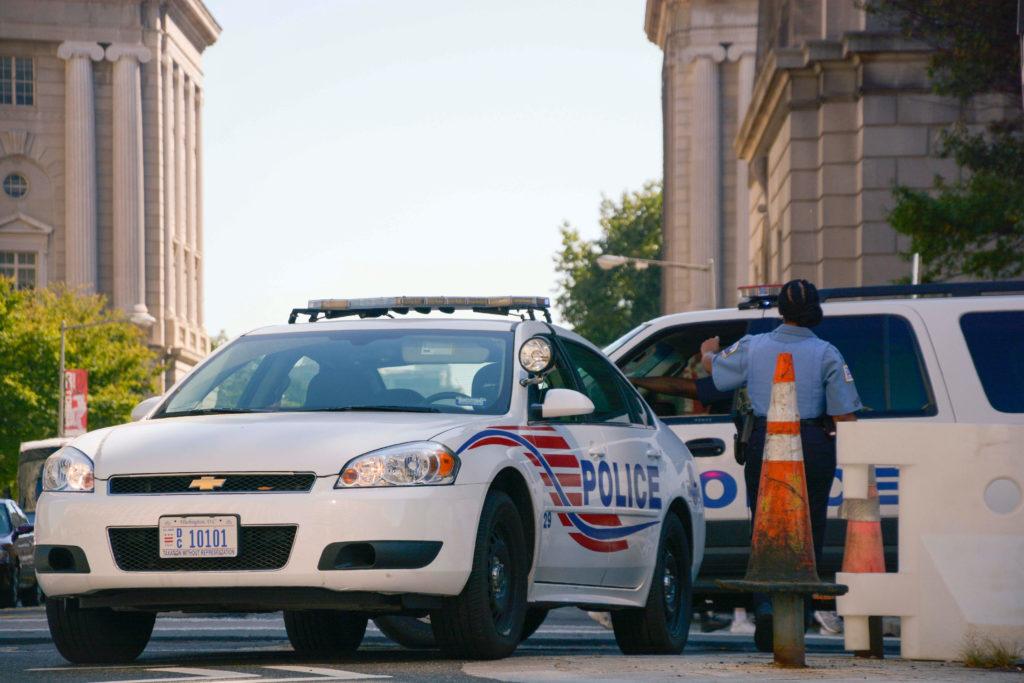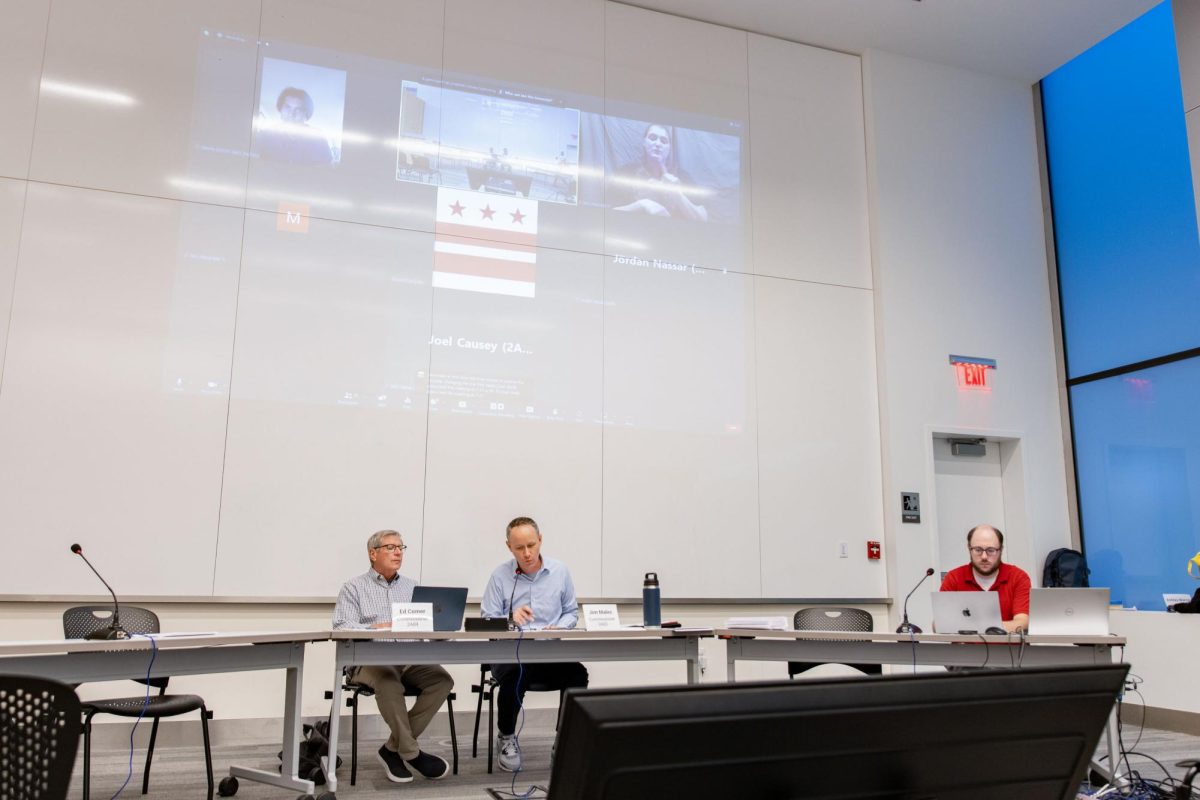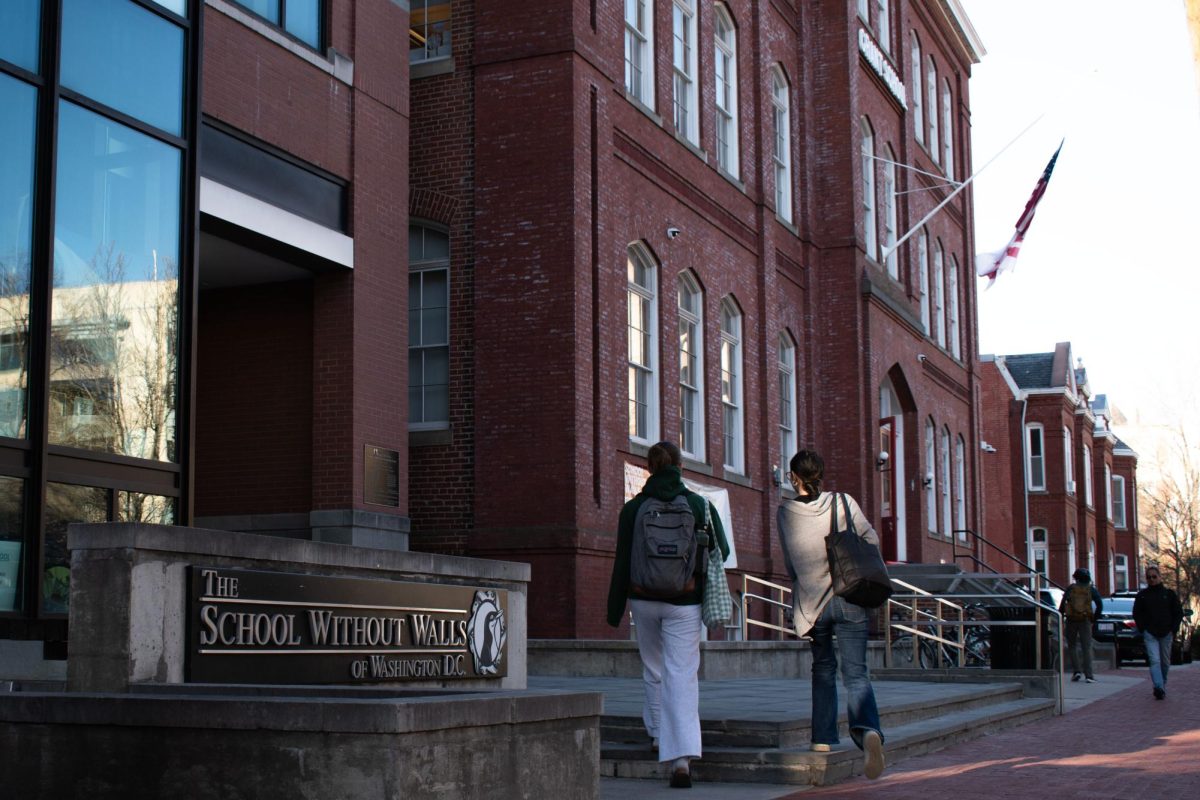It was just his fourth shift as acting chief of the Metropolitan Police Department, but Robert Contee III remembers the day as “hellacious.”
It was Jan. 6, and hundreds of rioters supporting former President Donald Trump had broken through police lines and barricades and invaded the U.S. Capitol building in an effort to prevent Congress from certifying Joe Biden’s electoral victory following a rally on the National Mall. Five people died as a result, including Capitol police officer Brian Sicknick, while Contee and MPD worked to regain control of the Capitol.
“I saw officers under the worst of the worst circumstances that I can recall in my time with the department, and these officers performed bravely, under the immense pressure that they were dealing with, the attacks that they were dealing with and all those things involved,” he said. “They were just heroic in their efforts, and I’m very proud of them.”
Marked by the attack at the Capitol, Contee’s term was launched with a rocky start – in his first six months as acting chief, he has faced unprecedented citywide security threats from extremist rioters, continuous calls for police reform and targeted data hacks that leaked internal files. The D.C. Council unanimously confirmed Contee as the permanent chief of the MPD last month, and Contee now looks to cement his leadership in community-based progress instead of local upheaval.
In an interview with The Hatchet, Contee, a GW alumnus, said much of his work as chief will focus on increasing positive, non-confrontational interactions between police and the community to build trust about a year after the murder of George Floyd sent protests against police brutality spreading through the streets of D.C. and the world.
“To me, when you talk about building trust and legitimacy with communities that we serve, the best way to do that is to have interactions that are not necessarily enforcement interactions,” Contee said. “And I think again, as we come out of the COVID environment, we’ll be able to do more of that.”
Contee said he has mandated every bureau within MPD to hold an event where officials interact with the D.C. community in a positive way at least once per month. Contee said officers can read with children, and IT staff can help senior citizens maintain and repair technology through these events.
“Whether it’s reading to kids or whether it’s doing some sporting event, I wanted to engage the entire agency in community engagement efforts all across our city,” Contee said. “So we’ve done that.”
Contee said improving the mental health of MPD officers, which he said has declined following the Capitol attack, can also benefit policing under his tenure. To develop wellness programs to protect the mental and physical health of officers, MPD hired Diana Karczmarczyk, a professional lecturer at the Milken Institute School of Public Health, to serve as MPD’s first director of employee well-being support earlier this month.
“I am excited and humbled to be a part of MPD,” Karczmarczyk said in a news release. “I look forward to identifying and creating opportunities together to make well-being a top priority.”
Contee, a D.C. native who earned a degree in professional studies at GW, said he plans to convene a meeting with chiefs of police from D.C. universities, like GW, Howard University and the University of the District of Columbia. He said the goal of the meeting would be to improve coordination between MPD and local universities for situations that require organization and cooperation with police, like Commencement and move-in days.
“I do plan to convene the meeting, now that we’re coming out of this COVID environment, with the chiefs of police from the universities just to see all the areas where we need to strengthen the relationship across the board with our universities,” he said. “I want us to be in partnership when there are things that require MPD to be aware of.”
Contee said the number of MPD officers dropped from 3,800 to 3,600 during the past year, and some officers left for other positions or careers because of increased scrutiny facing law enforcement through pressure from protests and calls for defunding the police following the murder of George Floyd. He said the decrease in available officers is “concerning” because some vital functions, like the department’s response time to emergency calls, are worsening.
“Are we saying that we’re not going to be able to respond to priority one calls for service as fast as we did when we had 3,800 officers?” he said. “Those are things that I’m watching right now in the short time that I’ve been in the seat.”
Jeri Epstein, the chair of the Foggy Bottom and West End Advisory Neighborhood Commission, said she approves of Contee’s work since when he was named acting chief in January. She said the department has become increasingly responsive to Foggy Bottom residents, a trend that she says comes “from the top,” noting how MPD stationed officers regularly at the local 7-Eleven and at 22nd and M streets to deter potential incidents when residents raised concerns about crime levels earlier this year.
“They have put together a plan,” Epstein said. “They’re not just doing it ad hoc, so I’ve been impressed.”
ANC Commissioner Trupti Patel also commended Contee’s accessibility, saying he seems easier to approach than previous MPD Chief Peter Newsham. She said she expects Contee to engage with the D.C. community as a whole moving forward.
“With him in charge, he can do a lot of that community outreach and community building that’s been sorely lacking,” she said. “I think basically he’s amenable to being more of the police chief that the city needs.”







